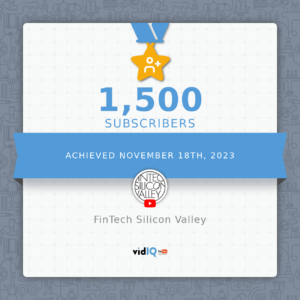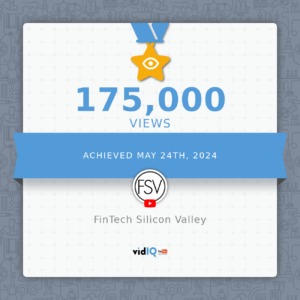
Stephen Bulfer CEO/CoFounder, StreamLoan has immersed himself in mortgage lending since 2015 with StreamLoan, a pioneer in digital mortgage, streamlining the mortgage process with digital technology for his mortgage lending customers, specifically dedicated to redefining the lead management and mortgage origination experience. Beyond thought leadership, he is a subject matter expert across the residential real estate & real estate finance category, including real estate experience covering both residential investment (20 years experience) and research; Stephen’s concentration during his MBA was real estate finance, with special focus on the subprime mortgage crisis. As a technical CEO, he has a unique background, blending of both startup and enterprise software. His extensive software start-up experience includes building five startups, most recently with the 2013 ionGrid acquisition by NetApp. Stephen has significant experience across strategy, build, and deployment of enterprise software at Fortune 500 companies extending to White House & Executive Office of the President, HP, Visa, MasterCard, Allstate, Kaiser, P&G, and over 50 Fortune 500 organizations. StreamLoan is an award winning mobile and SaaS platform. StreamLoan is a Silicon Valley based venture backed software firm (with HQ in San Francisco). Stephen holds two master’s degrees from Columbia Business School and University of California Berkeley. His passions cover skiing & snowboarding, travel, music, among other life adventures.
Stephen has immersed himself in mortgage lending since 2015 with StreamLoan, a pioneer in digital mortgage, streamlining the mortgage process with digital technology for his mortgage lending customers, specifically dedicated to redefining the lead management and mortgage origination experience. Beyond thought leadership, he is a subject matter expert across the residential real estate & real estate finance category, including real estate experience covering both residential investment (20 years experience) and research; Stephen’s concentration during his MBA was real estate finance, with special focus on the subprime mortgage crisis. As a technical CEO, he has a unique background, blending of both startup and enterprise software. His extensive software start-up experience includes building five startups, most recently with the 2013 ionGrid acquisition by NetApp. Stephen has significant experience across strategy, build, and deployment of enterprise software at Fortune 500 companies extending to White House & Executive Office of the President, HP, Visa, MasterCard, Allstate, Kaiser, P&G, and over 50 Fortune 500 organizations. StreamLoan is an award winning mobile and SaaS platform. StreamLoan is a Silicon Valley based venture backed software firm (with HQ in San Francisco). Stephen holds two master’s degrees from Columbia Business School and University of California Berkeley. His passions cover skiing & snowboarding, travel, music, among other life adventures.

Transcription
Pemo: Welcome, Stephen. Thanks so much for joining us today. I was wondering if you could tell me a little bit about StreamLoan and what you guys are doing, building?
Stephen: Sure. Thanks for having me as this quick interest. Stephen Bulfer, CEO and co-founder of StreamLoan. StreamLoan is digitizing the entire home purchase and mortgage process. We started out on this venture about six years ago or so and most of the world thought we were crazy because we were a mobile first company and much of the industry who really hasn’t had much innovation over the previous decades thought, “Okay, hey. How does mobile fit in with mortgage?” Mortgages are complex and they need desktops, and they need Windows, and they need fax machines and all this other technology. And it really is not the case. We push the envelope with the future of work. I mean, forget the pandemic. We were thinking about the future of work for this category years ahead and really had a focus to reimagine how the work could be done. When you think about the work that a lender or a bank does—the loan officers, the processers—and you dissect it down, how can we repackage? How can we streamline or redefine how that work is done? And they’re engaging, of course, with borrowers, helping get loans and homes purchased, and then real estate agents to keep them in the loop and to capture new business.
Pemo: Right. How do you see StreamLoan– what is the problem it’s solving, really? Obviously.
Stephen: Yeah, sure. The problem we started to set up to tackle almost six years ago and then the problem we still continue to work on today just due to the sheer complexity and size of the space is bringing efficiencies to the mortgage process. Any of you who have ever applied for a mortgage know how painful it is. It can be weeks or months long and back and forth and the lender asking you to send the same kind of information again in a missed voicemail, and it just creates inefficiencies. To put some dollars around it, we’re talking about $8800 is kind of the average cost for you or I to go apply for a mortgage, and the troubling part of that is it doesn’t have to be like that. If you think about how many billions of dollars are wasted every year just on trying to process mortgages, it’s astounding. So, that’s really kind of our entry point, and then of course to enable that with an all-digital experience which is more friendly and cheaper, etc.
Pemo: And how have you found people’s reception to your product? I mean, obviously, it’s a time saver and a money saver. It could only be a win, really, for most people. Have you had a good response from the public?
Stephen: Yeah. I would say up until probably 2018– let’s say the beginning of time is when rocket mortgage was launched, Super Bowl January 2016. Okay, so that’s time zero. Before that, there was a few dabbles but that was the beginning of life and digital mortgage became a beautiful thing to talk about, a cocktail party conversation, and that was really the beginning of the category of software that we’re in which is called point of sale. Previous to that, it didn’t exist. There was a little bit of CRM, but it didn’t do what we did. There was the back office. So, I would say in the beginning, there were early adopters who, of course, they got the vision. They’re like, “Yeah. Mobile mortgage process? It makes all the sense in the world.” I’d say a large part of the market just didn’t get that aspect. There were some customers and even investors and other players in the ecosystem who didn’t maybe believe that it was a hair on fire problem, and then the pandemic came, and we literally allowed our lenders processing billions of dollars of origination to keep their businesses going. And they could run their entire operation from their iPhone or an iPad on their couch or in the dining room table or in the kitchen next to their kids while they were supporting kids at home. It was the epitome of the mobile office, it really was. And so, we started to see not only early adopters but mid majority and even some of the laggers have to come around. There wasn’t a choice. If you wanted to keep your business running, they had to come around. And even some of the– I would say in their early days, some of the loan officers, maybe some of the other employees, are like, “Uh oh. Are they going to automate me out of my job?” So, that was top of mind for some, but of course it plays out and that’s not what we do. We create tools to make humans superheroes. We give you a superpower so you can do more with less as opposed to automating away the human.
Pemo: Right. And you mentioned the COVID crisis, what was the exact response and effect once that hit last year?
Stephen: Well, there’s a lot to unpack there but I’ll try to boil it down to the nuts and bolts. I’ll talk about consumer behavior, economics, and technology. On the consumer behavior side, what we’ve noticed– in fact, in the beginning, it was Doomsday. The world was over, this is the end of the Earth, forget mortgages. But in fact, what turned out is that there was a dramatic shift in consumer behavior. Once everyone realized, okay, this is going to be long and hard, but we will be stronger on the other side, people realized that home is important. Family is important, friends are important, and your gathering place is your home. So, in fact, we saw a huge spike. 2020 was the largest mortgage origination year in the history of the world. More than four trillion dollars.
Pemo: Wow, how interesting. Oh my God.
Stephen: Interest rates were low. Right.
Pemo: Wow. I’m surprised.
Stephen: It’s shocking and nobody would’ve forecasted this level of outcome, but interest rates are low, so people were refinancing and maybe pulling out cash to add another bedroom, to add another office. A home office or a bedroom or fix up their garage and create some more space for the kids to have a safe place to play. And then those that had the means, they were buying second homes, or they were moving from the center of the city out into suburbs or into second home markets. So, again, the purchase market was on fire and the refinance market was on fire. And so, the reason I give that background is because that’s good for the mortgage business. The mortgage business printed more money and made more money during the pandemic than in the history of mortgages including the 2005 all-time high.
Pemo: Well, that’s amazing but it really probably isn’t amazing if you think about it, I guess, because people were grounded in their homes, and for many long months. In California, at least, it went on for over a year. So, I guess, people had to make the most of their homes and the other issue that happened which I found very surprising was that there was a massive exodus out of Silicon Valley, Bay area. That totally surprised me. Do you know any reason why that happened being in the business that you are?
Stephen: So, exodus might– that’s a fun thing for CNN or Fox News to play on. Yes, there was—as we talked about—there was a shift in consumer behavior for lifestyle. The home became the epicenter because in many places in California, and other places, there’s literally curfews and quarantine and you’re locked up. Your home is the only– that’s your gym, that’s your restaurant, that’s your office.
Pemo: Your workspace.
Stephen: Workspace, everything.
Pemo: School for the kids.
Stephen: Exactly. It really became the center and it forced people– so, there was a bigger psychological shift that went on that was important and I think it’s not talked about much, and that was really around what is important in life. It’s this existential kind of question. What’s important? And the reason the restaurants and hospitality are struggling today and the unemployment numbers in some of those sectors are higher by choice or they have more jobs available than people is because people were forced to rethink what’s important in life and they were not happy commuting two hours, three hours, four hours a day. They didn’t want to go do that kind of job anymore. So, they had a chance with a lot of the resources that were printed and distributed out of our government to people, they had a chance to take a step back and say, “Okay, what’s important?” Well, home is important. Family is important. Gucci shoes and a Rolex don’t really matter if you can’t go and buy them, number one, and number two if you can’t go show them off. You’re stuck at home. So, all of this sort of forced people to think about what is important and the exodus around Silicon Valley or even New York, there was a temporary shift in a decrease in demand for rental and for purchase in the center of cities. But again, the untold story is the FOMO or the fear of missing out. The people that were in the center of the city saying, “Oh, I want more space. I want to move to the suburbs or maybe I want to move Jackson Hole or Park City or Vale.” But the people that were in the suburbs or in some of the second home markets felt that they were missing out on lifestyle of Broadway shows or concerts coming or being able to step out your front door and meet some friends for an impromptu glass of wine or a coffee. And so, you actually saw a resurgence. It was sort of a washing machine. So, now you have people that were taking advantage of the lower rents and maybe slightly less demand in the center of the cities from the others and they felt that they were doing something special that had life purpose and was fulfilling. And so, that’s actually what was going on, and now things have rebalanced a bit where there’s continued demand, companies are starting to feel out what policy makes sense in terms of work from home part-time/full-time, do you have to come to the office, can you come to the office, do we have an office? So, that’s being rebalanced.
Pemo: Rethought, yeah. Very interesting and you’ve got a great overview of the whole dynamic and I guess particularly because of your business as regards mortgages and homes.
Stephen: Absolutely. The only other thing I’ll just kind of wrap up that segment.
Pemo: Yes, please.
Stephen: The impact on technology. It became a must-have. It became a painkiller, not a vitamin. Even lenders that dabbled their toes or said, “Hey, this is on our next year roadmap.” No. This is on the immediate roadmap and guess what? Their pockets are full of cash. They have a ton of people that are buying homes and refinancing, and they have to have it. It’s a new expectation and sometimes it takes a crisis to reset the world and communities and culture and a lot of these big topics.
Pemo: And how do you see the market going? Things are obviously settling down a little bit. People are starting to hypothetically think that things might go back to normal, which I don’t agree with because I think the world’s been changed radically and will never return to what it was. But how do you think it will flow on? Because obviously you have to do your predictors for upcoming years. What’s your thoughts and your overview?
Stephen: A couple of things. I always like to start with the dollars and cents, what’s the impact on the economy and then cascade that down. When we take a look at the economy– and again, if you talk to two different people, you might get two different answers depending on their exposure to the stock market and such. But in general, the stock market is at an all-time high, so if you’ve had investments they’re doing well in general. Companies are printing money, they’re at all-time record profits. There are more jobs than there are people, there are more great jobs than there are people qualified. So, I think the backdrop is really good. Unemployment is low, growth numbers in terms of GDP– I mean, we’re talking about India or China, and this doesn’t happen. In large, mature economies, GDP should be something around 2% growth and that’s what we’ve been for a number of years. We’re growing at 5%, 7%. It’s crazy. Growth creates opportunity for everyone. It may not be evenly distributed so that’s a political wrinkle, but it creates opportunity. To tie it back to mortgage and housing, in the next three or four years, we’re going to see more purchase origination than in the history of housing. What does that mean? It means refinances are going to taper off a bit and most of the volume will be people buying a new home or a used home and that creates its own set of challenges. Prices are going to continue to drift up. Interest rates are going to stay fairly stable, maybe tick up a titch but not enough to offset the demand. So, if you’re trying to buy a home it’s going to be tough. There’s a lot of competition and demand.
Pemo: Right. And so, all those new home buyers should just keep saving for a little while until it changes? Is that your advice?
Stephen: Well, I’m a bit of– buy the world is my investment philosophy. If you don’t buy now, the price is going to be triple later and it always feels expensive and it always feels like, “Oh, are we a bubble?” Well, housing supply’s tight and there’s more housing formations and immigration and demand for housing than there are units, and we don’t see where more units are going to come from, so we’re talking another five to ten years of probably strong growth. So, if you’re going to buy, get it done now and enjoy the ride.
Pemo: Of course. That’s very wise advice. Stephen, great to have you on and wish you all the best with StreamLoan. I gather that it’s only going to get better, and particularly that you were such a ground-breaking company when people didn’t see that at the time when you first started. Good work for hanging in there and now the reaping the profits and helping the community. So, appreciate you coming on today and all the best.
Stephen: Thank you so much for having me. Good discussion and I look forward to continued conversations in the future. Thank you.
Pemo: For sure. All the best. Thank you.
Stephen: Okay. Take care.

















